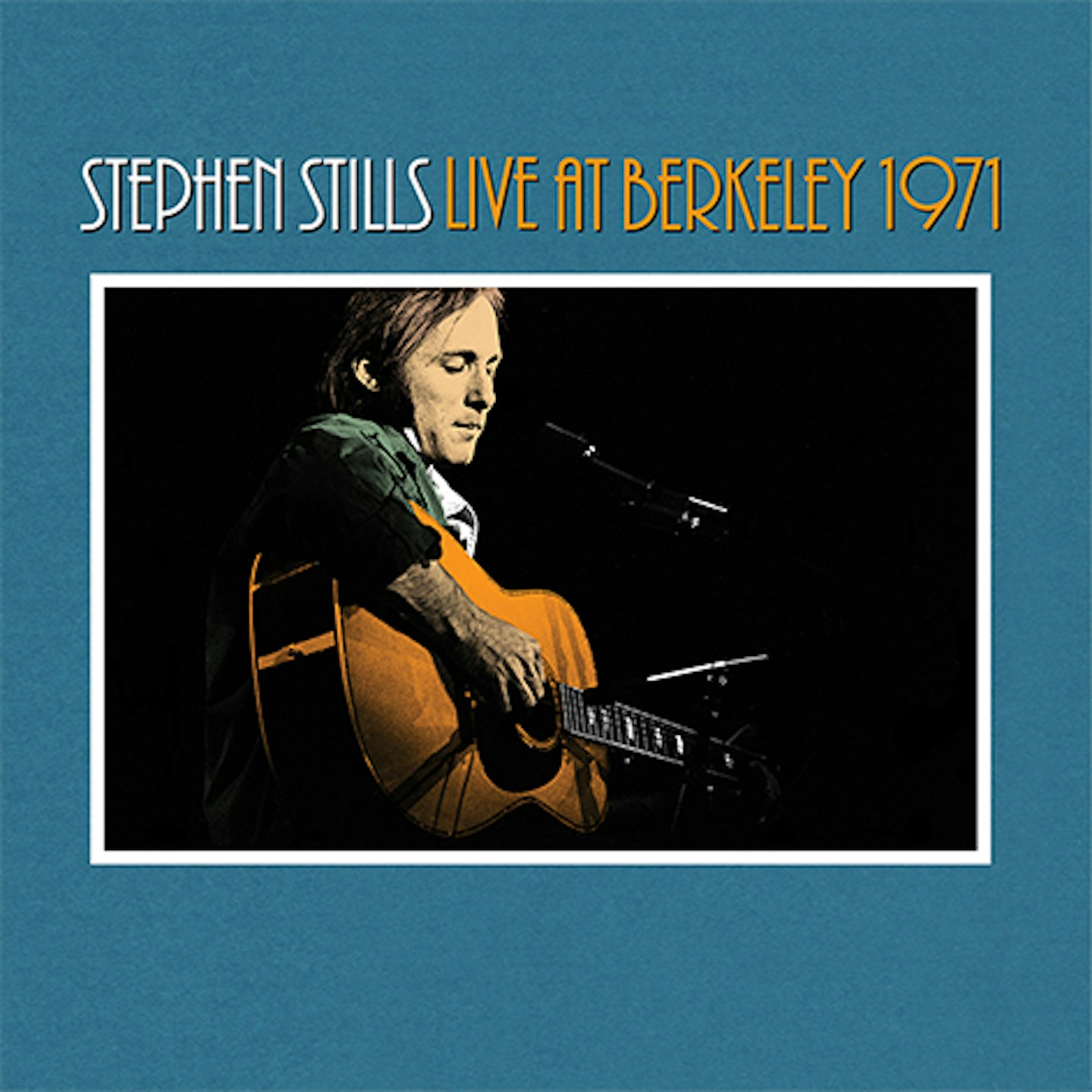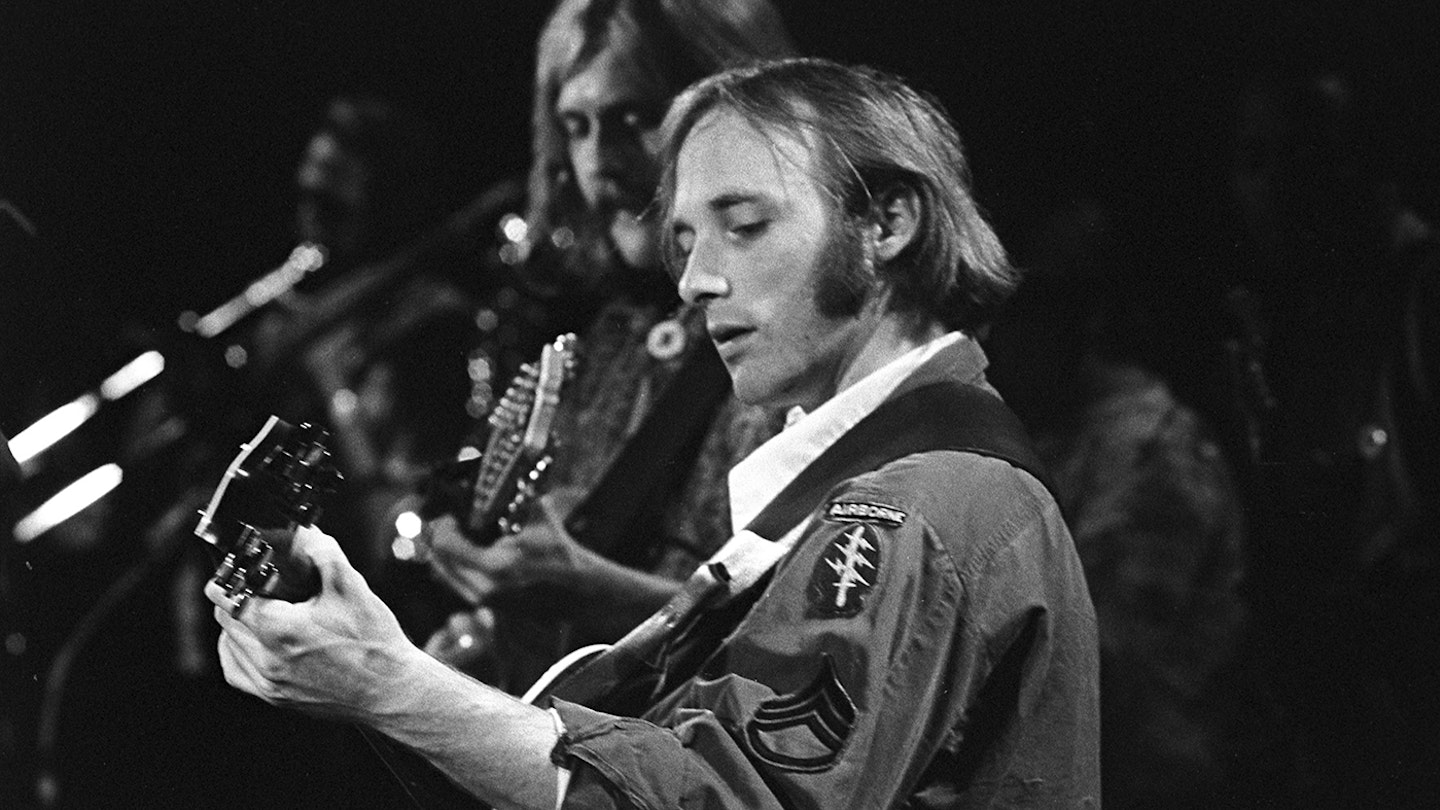'Captain Manyhands' fights his way out of CSNY and into the spotlight. Casualties multiply
Picture: Henry Diltz
Stephen Stills
★★★★
Live At Berkeley 1971
OMNIVORE. CD/DL/LP

STEPHEN STILLS has not always been the easiest millionaire rock star to sympathise with, but his attempts to build a solo career through 1971 still have a terrible pathos to them. In June, he released his second solo record: “A fifth-rate album by a solid second-rate artist who so many lower-middlebrows insist on believing is actually first-rate,” wrote Rolling Stone’s John Mendelsohn, harshly.
That same month, Stills began his tour at the Celebration Of Life festival in Louisiana, an apocalypse of heatstroke and Hell’s Angels carnage where the police charged local straights admission to ogle the naked hippies. The support act, Crazy Horse minus Neil Young, pulled out before the tour proper began, and Stills took to drinking heavily to calm his nerves: one night, suggests David Browne in his book about CSNY, Stills spent five minutes finding his stool on-stage. His guitar and harmony partner in the band, Steve Fromholz, later recalled an unsustainable tour diet of “Jim Beam, cocaine and cheeseburgers”.
“This band isn’t just me and some other guys…” Neil Young’s Ducks Fly Again
Arenas were often half-empty, as Stills embarked on epic shows that incorporated solo folk and blues sections alongside a big band soul revue with the Memphis Horns. The concept, Stills tantalised a Chicago audience, was “A marathon where you watch the singer bleed while he tries to sing 18 songs in a row”. But awful distractions persisted: a rigger fell to his death at the Madison Square Garden show; Stills crashed his motorbike and tore his knee ligaments, finishing the tour in a brace.
Unsurprisingly, Stills swiftly put the whole escapade behind him, retreating to Colorado and forming Manassas. For a year, he had vigorously and neurotically tried to assert himself as a solo artist away from the theoretical democracies of CSNY and Buffalo Springfield. Perhaps, it transpired, he was better off merely calling the shots in another band.
Relentless, often overwrought, often brilliant.
Fifty-two years later, though, this document of the tour’s last two nights in San Francisco still has much to commend it. Stills comes across, as ever, as a divisive figure. On the one hand, an endurance athlete who cannot help but try too hard, who brings military intensity to even the most delicate musical traditions. On the other, an extraordinarily supple and ambitious artist, with an understandable chip on his shoulder; if those other guys he worked with could get so much love, why couldn’t he?
Live At Berkeley 1971 powers through it all – relentless, often overwrought, often brilliant, too. There are Louvins-style country duets with Fromholz (Jesus Gave Love Away For Free) and virtuoso clawhammer banjo picking (Know You’ve Got To Run). A medley of CSN’s 49 Bye-Byes and Springfield’s For What It’s Worth is delivered solo, at the piano, as a frantic gospel rave-up. When the Memphis Horns turn up, you can feel Stills loosen up a little: Bluebird Revisited builds on the soulful burn he’d trialled with CSNY in 1969; Cherokee – a paean to Rita Coolidge, who’d recently left him for Graham Nash – is 10 minutes of high-level interplay between the horn section, Stills’ indignant, sputtering lead, and his resilient rhythm section of Fuzzy Samuels and Dallas Taylor. Pretty great.The highlights, though, come when he’s joined by David Crosby for You Don’t Have To Cry and The Lee Shore, their vocal blend gorgeous even without the median tone of Nash. While the two songs both have that hazy California promise and melancholy that made CSN(Y) so alluring, they also point up the fundamental differences between the two. Crosby’s Lee Shore is impressionistic, unanchored, drifting into jazz-tinged extemporisations. Stills’ You Don’t Have To Cry is its match in beauty, and superficially ethereal. But there’s a rigour and unstinting momentum driving it forward, like so much of Stills’ dynamic, exhausting music. As if even in a fugue state, he can’t stop himself being the strident taskmasker.
Stephen Stills Live At Berkeley is out 28 April via Omnivore.
READ MOJO'S VERDICT ON ALL THE MONTH'S BEST MUSIC. Plus, receive every new issue of MOJO on your smart phone or tablet to listen to or read. Enjoy access to an archive of previous issues, exclusive MOJO Filter emails with the key tracks you need to hear each week, plus a host of member-only rewards and discounts by BECOMING A MOJO MEMBER
